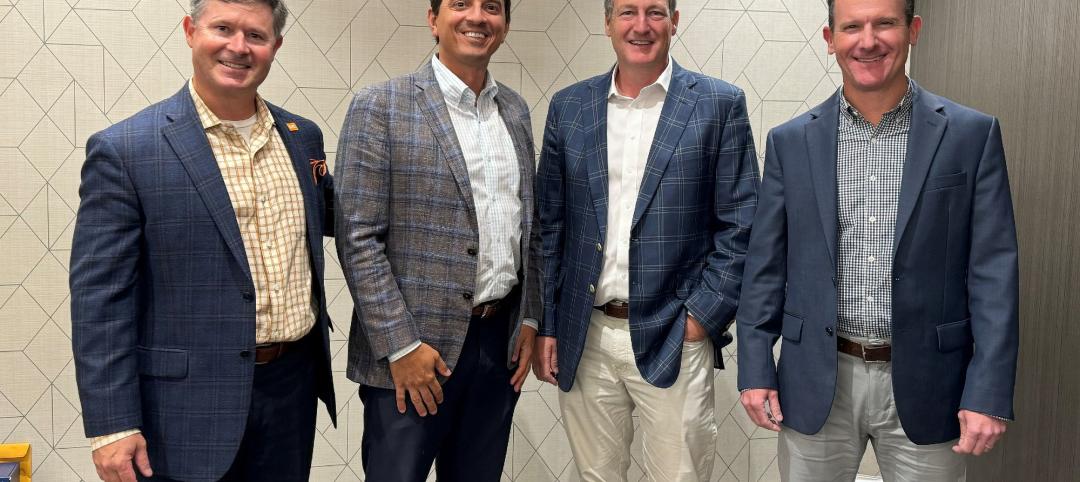The U.S. Green Building Council (USGBC) and the Bank of America Charitable Foundation announced the opening of the application period for the expanded 2014 Affordable Green Neighborhoods Grant Program.
The program, which awards financial and educational resources to developers of affordable housing in North America that are committed to building sustainable communities through the LEED for Neighborhood Development program, is made possible by an $850,000 grant from the Bank of America Charitable Foundation.
This year the program will expand to 14 awardees from 10 in 2012, the most recent year that grants were awarded. Applications will be accepted from now until July 11, 2014.
LEED for Neighborhood Development is a green neighborhood rating system that integrates the principles of smart growth, new urbanism and green building, while benefitting communities by reducing urban sprawl, increasing transportation choices and decreasing automobile dependence, encouraging healthy living, and protecting threatened species.
“Ensuring universal access to healthy and affordable housing for all people is a critical element of our pursuit of a sustainable built environment,” said Rick Fedrizzi, president, CEO and founding chair, USGBC. “Green buildings and neighborhoods are about the people who inhabit them every day, and Bank of America is committed to creating vibrant, walkable and affordable communities that enhance the quality of life for everyone who calls them home.”
“Together, Bank of America and USGBC are bringing to life the best plans in sustainable community development throughout North America,” said Alex Liftman, global environmental executive, Bank of America. “The continued growth of the LEED for Neighborhood Development and the Affordable Green Neighborhood programs showcases how communities can design and build in a way that protects our environment while enhancing economic vitality.”
A review committee of industry leaders will award 14 affordable housing projects in the U.S. and Canada with the following support:
-
Cash award of $25,000 USD to be used to pursue LEED for Neighborhood Development certification
-
Complimentary LEED for Neighborhood Development reference guide
-
Registration for the online LEED for Neighborhood Development webinar series
-
Registration for a LEED for Neighborhood Development educational workshop
-
Waived registration and exam fees for one member of each project team to pursue the LEED Green Associate professional credential
-
Monthly support calls and direct access for technical inquiries
-
One registration for the National Affordable Green Homes & Sustainable Communities Summit during the Greenbuild International Conference and Expo in New Orleans
-
Travel stipend to attend Greenbuild 2014
-
In addition to the award package, three to four projects will be selected to receive a two-day, in-person technical assistance session with a team of USGBC and Green Building Certification Institute (GBCI) staff, valued at $3,000. The in-person meetings provide an opportunity for USGBC and GBCI staff to provide intensive, dedicated assistance to projects pursuing certification. The application form provides interested projects the opportunity to apply for the selective technical assistance sessions.
This is the third round of funding the Bank of America Charitable Foundation has provided for the Affordable Green Neighborhoods Grant Program. The 2014 program has grown to include support for additional projects, in-person technical assistance visits and an expanded focus to include Canadian projects.
Through the previous cycles of the grant program in 2012 and 2010, USGBC has provided assistance to 20 affordable housing redevelopment projects across the country, representing the creation of 8,448 rental units and 2,391 for-sale units. All projects are being designed and built to the highest standards of environmental sustainability and indoor air quality, with the majority reserved for low-income residents.
Applicants for the program will be notified of their status in early September. To learn more about the Affordable Green Neighborhoods Grant Program and/or to apply, visit www.usgbc.org/initiatives/grants/affordable-neighborhoods.
Related Stories
MFPRO+ News | Jun 3, 2024
Seattle mayor wants to scale back energy code to spur more housing construction
Seattle’s mayor recently proposed that the city scale back a scheduled revamping of its building energy code to help boost housing production. The proposal would halt an update to the city’s multifamily and commercial building energy code that is scheduled to take effect later this year.
Mass Timber | May 31, 2024
Mass timber a big part of Western Washington University’s net-zero ambitions
Western Washington University, in Bellingham, Wash., 90 miles from Seattle, is in the process of expanding its ABET-accredited programs for electrical engineering, computer engineering and science, and energy science. As part of that process, the university is building Kaiser Borsari Hall, the 54,000-sf new home for those academic disciplines that will include teaching labs, research labs, classrooms, collaborative spaces, and administrative offices.
Construction Costs | May 31, 2024
Despite challenges, 2024 construction material prices continue to stabilize
Gordian’s Q2 2024 Quarterly Construction Cost Insights Report indicates that supply chain issues notwithstanding, many commodities are exhibiting price normalization.
University Buildings | May 30, 2024
Washington University School of Medicine opens one of the world’s largest neuroscience research buildings
In St. Louis’ Cortex Innovation District, Washington University School of Medicine recently opened its new Jeffrey T. Fort Neuroscience Research Building. Designed by CannonDesign and Perkins&Will, the 11-story, 609,000-sf facility is one of the largest neuroscience buildings in the world.
Architects | May 30, 2024
AE firm Goodwyn Mills Cawood merges with Southland Engineering
Architecture and engineering firm Goodwyn Mills Cawood (GMC) is further expanding its services through a strategic merger with engineering firm Southland Engineering in Cartersville, Ga.
K-12 Schools | May 30, 2024
Inclusive design strategies to transform learning spaces
Students with disabilities and those experiencing mental health and behavioral conditions represent a group of the most vulnerable students at risk for failing to connect educationally and socially. Educators and school districts are struggling to accommodate all of these nuanced and, at times, overlapping conditions.
MFPRO+ New Projects | May 29, 2024
Two San Francisco multifamily high rises install onsite water recycling systems
Two high-rise apartment buildings in San Francisco have installed onsite water recycling systems that will reuse a total of 3.9 million gallons of wastewater annually. The recycled water will be used for toilet flushing, cooling towers, and landscape irrigation to significantly reduce water usage in both buildings.
Healthcare Facilities | May 28, 2024
Healthcare design: How to improve the parking experience for patients and families
Parking is likely a patient’s—and their families—first and last touch with a healthcare facility. As such, the arrival and departure parking experience can have a profound impact on their experience with the healthcare facility, writes Beth Bryan, PE, PTOE, PTP, STP2, Principal, Project Manager, Walter P Moore.
Urban Planning | May 28, 2024
‘Flowing’ design emphasizes interaction at Bellevue, Wash., development
The three-tower 1,030,000-sf office and retail development designed by Graphite Design Group in collaboration with Compton Design Office for Vulcan Real Estate is attracting some of the world’s largest names in tech and hospitality.
MFPRO+ News | May 28, 2024
ENERGY STAR NextGen Certification for New Homes and Apartments launched
The U.S. Environmental Protection Agency recently launched ENERGY STAR NextGen Certified Homes and Apartments, a voluntary certification program for new residential buildings. The program will increase national energy and emissions savings by accelerating the building industry’s adoption of advanced, energy-efficient technologies, according to an EPA news release.

















